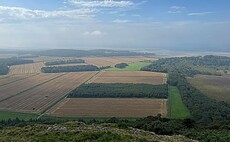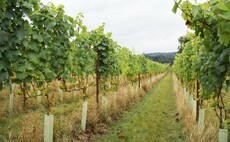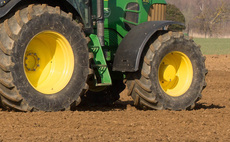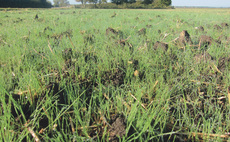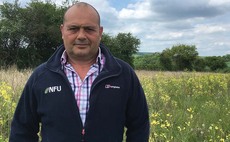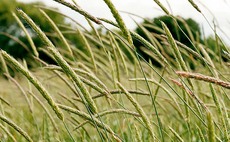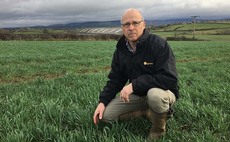Black-grass
Arable
With industry aiming to reach net zero by 2040, one of England’s largest arable farms is putting systems in place to achieve this.
Arable
Cambridgeshire farmer, Jamie Stokes manages his family's 1,000 hectare arable farm for his 96 year old grandfather. Years of succession planning had set a route for a fairly painless transition down two generations in one step. However, now if his grandfather survives until April 2026, at least 200 hectares of the farm must be sold to pay the tax bill, he says. And having just adjusted the business to survive the loss of subsidies, the maths on losing a fifth of the farm's land poses another major challenge.
Arable
A small arable farm on the edge of the Lake District is exploring new ways to produce crops while preserving its carbon-rich peatlands.
Arable
Exclusive dinners to yoga in the vineyard – how one Hertfordshire farm has ambitious plans as wine industry continues to flourish.
Arable
Many growers have been forced to drill cereals much later than they would have liked this season after persistent rainfall has put fieldwork on the backfoot. Alice Dyer gets tips for success from two experts.
Black-grass
New research has revealed possible cause of herbicide-resistant weed
Arable
NFU crops board chairman Matt Culley is a fourth-generation farmer from Hampshire working in partnership with his parents and brother.
Arable
With black-grass starting to rear its ugly head above crops this season, growers have until around the first week of June to decide what to do with badly affected areas, in order to prevent seed return.
Arable
Íæż½ã½ã with tricky grass-weeds to control are invited to take part in a new farmer-led project as part of the second year of trials on harvest weed seed control (HWSC).
Arable
Simon Nelson advises farmers on a wide range of arable and forage crops across Cumbria, north Lancashire and into south west Scotland.


 21 November 2024
•
6 min read
21 November 2024
•
6 min read

